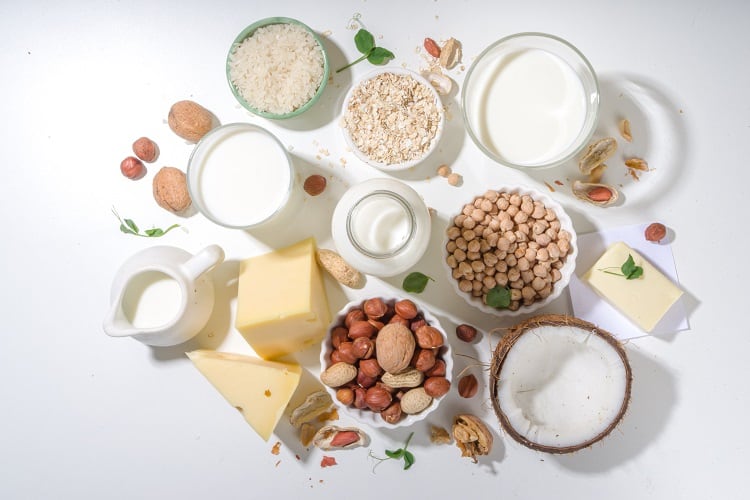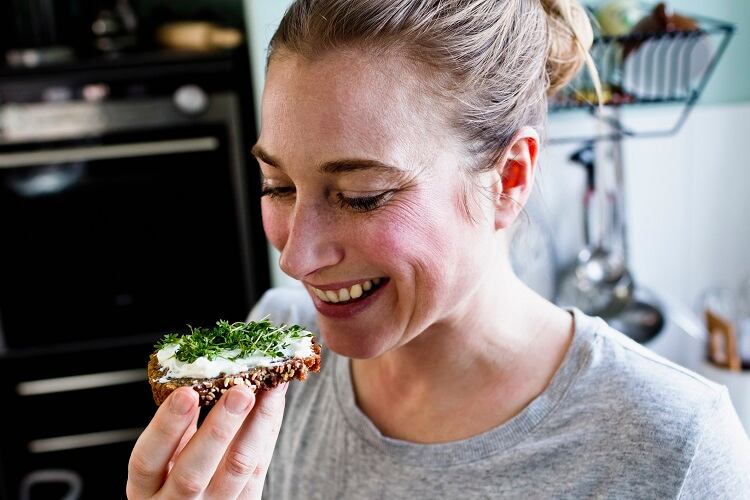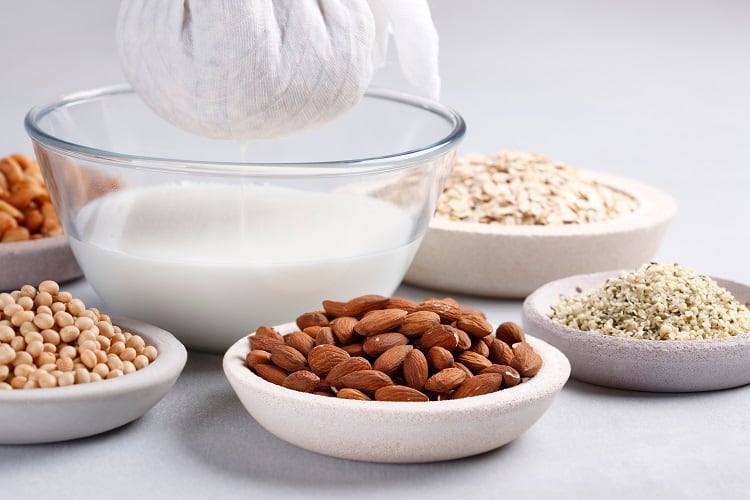In Europe, sales of dairy alternatives grew by 49% between 2020 and 2022, according to the Good Food Institute. It is estimated that globally, the alt dairy market could reach over $60bn (€55bn) by the end of the decade.
Recent research suggests the main reason consumers switch from conventional to plant-based milk, for example, is to feel healthier. But environmental and animal welfare concerns are also motivators.
Understanding potential drivers and barriers of plant-based dairy consumption in Europe will undoubtedly help inform innovators in the field.
In new study from the University of Hohenheim in Germany, researchers have sought to identify the determinates and drivers of demand for plant-based dairy products across EU countries that initially had different levels of sales.
Differences and similarities were analysed between Denmark, Germany, France, Italy, Poland and Spain, so as Northern, Southern, Eastern, and Western Europe was represented.
“However, the sample can only be considered representative to a limited extent,” explained Rebecca Hansen from the Department of Agricultural Markets at the University of Hohenheim and co-author of the study.
Indeed, only people who had either already consumed plant-based dairy alternatives or were toying with the idea were included in the study. “People who were not interested in it at all were not considered.”
Greatest market potential identified in Germany
Of the six countries analysed, the study found Germany to have the highest sales and the greatest market potential for plant-based dairy alternatives.
“The strong innovative power in this area is evident in many small start-up companies,” according to study co-author Dr Beate Gebhardt, head of AK BEST (Business Excellence and Sustainability Transformation) at the University of Hohenheim.
“For example, of all the countries studied, Germany has the most new plant-based dairy alternative products coming to market.”
German start-ups working in plant-based dairy include Blue Farm, Vly, and The Oater.
The researchers believe Germans are unique in their particularly critical attitude when it comes to animal welfare, which along with factors associated with health and the environment, play a major role in deciding how often people consume plant-based dairy alternatives.
In Germany, participants who followed vegetarian or vegan diet principles were 34% more likely to consume plant-based alternatives more often. For Dr Gebhard, this finding confirms the researchers’ assumption that the decision to consume plant-based dairy alternatives is largely determined by dietary habits.
“In addition, social norms and cultural traditions influence Germans less than people in other countries in this regard.”
Consumers more hesitant in Poland, Spain and Italy…
The study found that conversely to Germany, consumers were more hesitant to replace dairy with plant-based alternatives in Poland, Spain and Italy – for varying reasons.
In Poland, the researchers linked this to nutrition habits, which are deeply rooted in the culture of different countries. The aversion to plant-based dairy alternatives in Poland may be explained by the image of conventional dairy in the country: it is touted as healthy and beneficial overall.
“Dietary behaviour is complex,” said Dr Gebhardt. “It is shaped not only by the individual beliefs of consumers in conjunction with socio-demographic factors and the cultural environment, but is also influenced by political programs and environmental issues.”
In Poland, consumers also criticised the taste experience of plant-based dairy alternatives, describing them as either too sweet or too greasy.
Taste and sensory experience was also a concern for consumers in Italy and Spain, and a factor discouraging prospective buyers from consuming these products. But if price, taste, variety and availability were improved, the researchers believe the probability of consuming these foods on a daily basis would increase.
“As our results show, prospective consumers who are only beginning to consider consuming plant-based ‘dairy’ products in particular are put off by the unsatisfactory product attributes,” said Hansen. “They want more variety and a better taste or mouthfeel.”
What’s more important: taste or mimicry?
The researchers agree that to reach more consumers, manufacturers need to develop products with ‘improved’ formulations or more product variants. “This is especially important in Italy or France, where the importance of sensory enjoyment is culturally ingrained,” noted Hansen.
While taste needs to be good, it does not need to mimic that of its conventional dairy counterpart, believes Dr Gebhardt. “However, the taste, i.e. the culinary quality of the food, must be good. This might mean that the product offers a new, distinct taste experience.”
This view is shared by Sweden-headquartered plant-based cheese company Stockeld Dreamy, who is questioning the need for a product to taste exactly like the dairy-based version.
“A debate we’re having internally is to what degree we should be proud of our ingredients and the flavour of lentils and chickpeas, which is definitely there – it’s the flavour of the product – and how neutral we should go,” co-founder and CEO Sorosh Tavakoli recently delegates at FoodNavigator’s Protein Vision broadcast event.
“To sum it up, I think we want to decrease the barrier for new people to come on board. We don’t want to have a radical taste that needs a lot of training to like, but still want to have a signature flavour where it actually tastes of what it is.”
‘Curiosity motivates consumers to try new food products’
The research out of Hohenheim University also found that curiosity motivates consumers to try new food products. For all people who consume plant-based dairy products, or are open to it, having information about the products is important.
“Questions arise like: What is the product made of? What does the production process look like? Is it healthier? Is it more sustainable? How can I prepare it? – and answers to all of these should be easy to find,” according to Hansen and Dr Gebhardt.
The best solution, they believe, would be to have easily accessible information on the packaging or at the point of sale.
That is not to say that education level was found to be an important factor in motivating plant-based dairy consumption. In fact, contrary to the researchers’ expectations, they found that education level and other sociodemographic factors do not have a statistically validated influence on the frequency of consumption of plant-based dairy alternatives.
Source: Food Quality and Preference
‘Hype or hope? What consumer motives tell us about the prospects for plant and animal-based dairy products in six European countries’
Published July 2023
DOI: https://doi.org/10.1016/j.foodqual.2023.104910
Authors: Rebecca Hansen, Beate Gebhardt, Sebastian Hess





